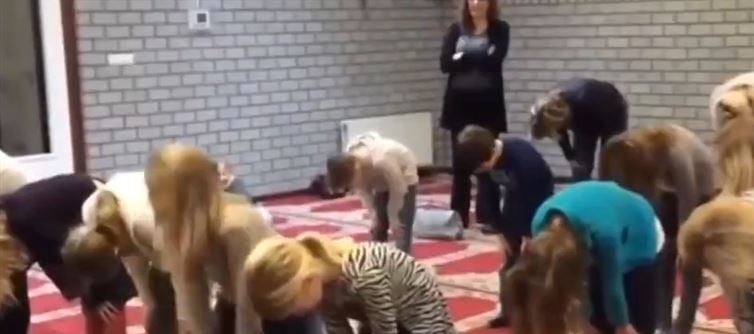
This video is not new; it dates back to 2016 and was part of a broader controversy involving a primary school in Zwolle, Netherlands. According to reports from that time, the Ghulzar e Madina mosque in Zwolle was the site of such activities, where children from Christian backgrounds were taught Islamic prayer by an imam. The mosque had previously been associated with radical preachers, adding to the controversy.
The incident drew criticism from parents and some political figures, who argued that such activities amounted to indoctrination rather than cultural education. The Dutch national curriculum, which emphasizes learning about major religions in a multicultural society, was cited as the rationale, but the specific practice of participating in prayer was seen as crossing a line.
In the Netherlands, the education system is designed to be inclusive, reflecting the country’s multicultural and secular nature. The curriculum includes learning about major world religions, which is intended to foster understanding and tolerance. However, the extent to which students participate in religious practices, especially those outside their own faith, remains a point of contention.
This event reflects broader debates about immigration, integration, and the role of religion in public education. It highlights the challenges of balancing cultural exposure with the preservation of individual and familial religious identities. The controversy also underscores the political climate in the Netherlands, where issues of multiculturalism have been a focal point, especially with the rise of parties like Geert Wilders’ Freedom Party, which oppose what they see as excessive political correctness.




 click and follow Indiaherald WhatsApp channel
click and follow Indiaherald WhatsApp channel